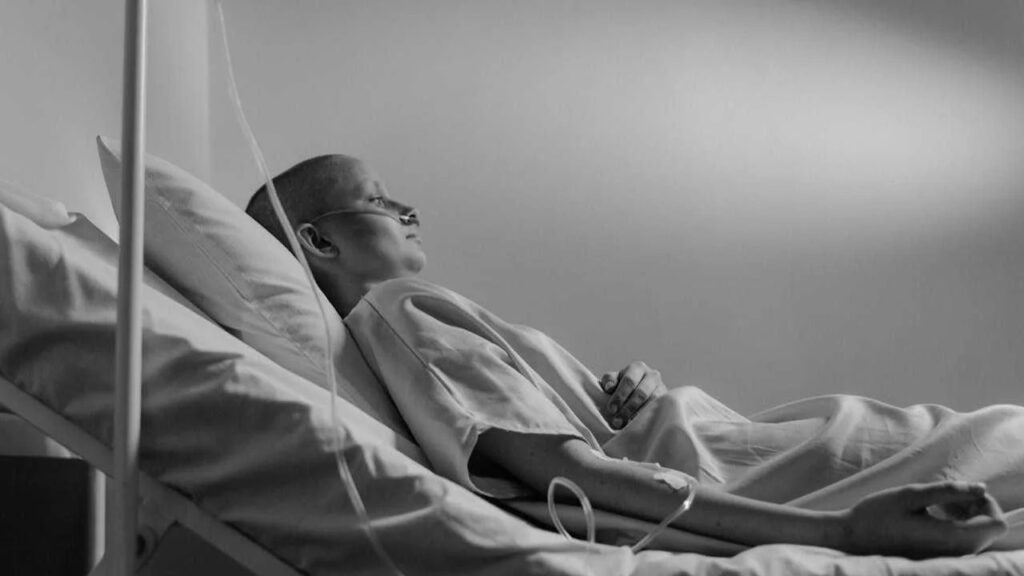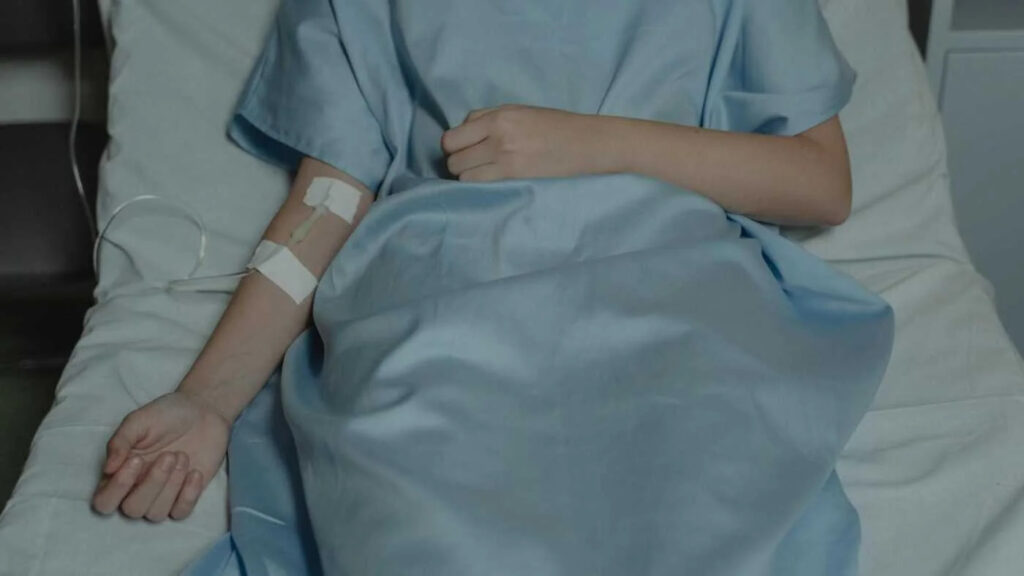Science
Is Water in Space the Rule, Not the Exception? The Mystery of Planetary Birth
24 February 2026

Euthanasia involves a person making a conscious and rational decision to end their own life, with the procedure carried out with the assistance of state institutions. The trivialization and legalization of death on demand risk abuse. While it remains entirely illegal in Poland, Western countries often portray it in a more favorable light. Dominika Tworek discusses the dangers of extreme views on euthanasia with philosopher Tomasz Stawiszyński.
Dominika Tworek: When we touch on the topic of euthanasia, we tread a line of ethical dispute that seems practically unsolvable.
Tomasz Stawiszyński*: Indeed. This issue brings into conflict two worldviews – secular and religious. Its roots reach fundamental matters. The core philosophical question is whether a person has the right to decide the moment of their death. Christianity answers no, as life is given by God, who alone decides when it ends. In a secular perspective, however, a person is the sole proprietor of their life, with no higher authority above them. Thus, they have the right to euthanasia, but under socially agreed conditions, primarily when facing unbearable, degrading suffering with no hope of improvement.
CBOS research shows that Poles perceive euthanasia in this way. However, in Western countries like the Netherlands, Belgium, Switzerland, and Canada, where it has been legal for years, the definition has been “softened.” Euthanasia is sometimes seen as a panacea for all human suffering and inconveniences, even as a “rescue for a burning planet.”
These are fortunately – at least for now – marginal and extreme voices, yet they still cause concern.
A study conducted on 13,000 Canadians who chose this path in 2022 revealed that over a third did so because they felt they were a burden to their loved ones, and 17% cited loneliness as their main motivation. This unveils a dark side of the world we live in. People whom society cannot adequately care for or are uninterested in are dying this way, even though they might want to live under different circumstances. This is not how we envision modern democracy.
We recommend: The Price of Money. Life on Credit

Moreover, in Canada, there have been reports of individuals seeking help for chronic pain being offered euthanasia instead, or of doctors pressuring patients to make such a decision.
If we had spoken ten years ago, I would have had no doubts – euthanasia should be legal. Arguments about a slippery slope leading to potential abuse seemed to me mere rhetoric not to be concerned with. Today, however, what once seemed rhetorical is beginning to manifest in various instances. I still believe that in strictly defined cases (which must be meticulously verified), euthanasia should be legal. Yet, encountering recent reports, like those from Canada, I have begun to question whether society is morally mature enough for this.
I ponder the far-reaching antisocial consequences of such a step. According to a Research Co. survey, nearly 30% of Canadians consider homelessness and poverty valid reasons for legal euthanasia. The media reported a case of a disabled man who wanted to undergo the procedure because he faced eviction from social housing. Fortunately, an online fundraiser prevented this.
It shows that various legal solutions, even if born from noble intentions, operate within a specific system. Our system revealed its worst side during the pandemic. Over half of COVID-19 victims in Europe were residents of “retirement homes” or other social care facilities. These people were often left without any care because investing in their rescue was deemed unprofitable. Michel Houellebecq noted that a person who surpasses a certain age threshold is essentially treated as if they are already dead.
Is the system only for the young and able-bodied?
Within Western societies, there is a cult of efficiency, agility, and youth characteristic of late capitalism. When efficiency and agility are exhausted, a person – unless they have adequate financial resources – often begins to be seen as a burden. This became very apparent during the pandemic, as shown by Canadian studies.
What underpins this process?
Several components. The last hundred years have seen a massive technological acceleration. Modern medicine can extend life on an unprecedented scale, while also providing means to end it quickly and painlessly. Overlay this with the retreat of Christianity, which provided an ethical framework within Western culture, offering a coherent worldview, identifying “good” and “evil,” and providing moral guidelines.
We recommend: Should We Trust Our Intuition? The Power of the Hunch

How significant is the role of increasing individualization in Western societies?
I think it’s crucial. Turbo-capitalism fosters individualization, and since the pandemic, these processes seem to have intensified. Add to this the clear expansion of identity politics in the last decade, further fueling conflict and polarization. The world becomes increasingly incomprehensible and difficult to interpret. Economic instability, blurring boundaries between reality and unreality, and the threat of global war only deepen disorientation.
In such conditions, we instinctively cling to black-and-white thinking.
It allows us to quickly alleviate uncertainty. Our views often stem not from real reflection but from tribal identification. A component of tribalism is also the search for an easily identifiable enemy – a classic polarization scheme: everything bad is someone else’s fault, and we are absolutely pure and noble. We live today in chaos, including moral chaos. We should be aware of this and proceed very cautiously – yet we pretend everything is obvious and clear.
Today, hysterical attitudes dominate, preventing discussion on such important and serious topics as euthanasia.
Polarization permeates everything, including the legality of euthanasia, making it difficult to nuance positions and draw attention to complexities. It has become customary that people with liberal-left beliefs should support legalization, while those with right-wing beliefs should oppose it, with no exceptions or ambiguities. In the first camp, anyone who raises doubts is automatically treated as a superstitious reactionary. In the second, anyone who sees any positive aspects of legalization is considered an advocate of the “culture of death.” This polarization makes serious conversation impossible, unfortunately.
Recently, there was much talk about a 29-year-old Dutch woman who underwent euthanasia due to depression and personality disorders.
It’s a very moving and controversial case. Apparently, psychiatrists concluded that nothing could be done and that her condition would certainly not improve. This narrative seems peculiar to me, but one would have to ask psychiatrists about it. I do not deny the reality of mental suffering, but relying solely on subjectivity seems troubling and problematic when discussing life-and-death situations. In cases of irreversible physical illness, we have some objective parameters to assess the patient’s condition. In the case mentioned, the criteria are ultimately purely subjective. Was there really no way to help this girl? Was her decision truly conscious and rational? Was death the only option for her? For me, at any rate, this is a far from obvious and disturbing story.
Is there anything else in our field of consideration that causes concern?
I will mention Philip Nitschke. He is a non-practicing Australian doctor who, a few years ago, showcased his creation – a euthanasia capsule – at the Venice Biennale. It looks incredibly attractive, and futuristic, like a designer gadget. According to the creator’s intention, it is an object that anyone could print at home using a 3D printer. Access would be verified by an online test to check whether a person is deciding to die rationally.
We recommend: From Teaching to Collaborative Learning. The Project Method

Is this an artistic provocation?
Not at all. Nitschke is very serious. However, for me, it is the trivialization and gadgetization of the most fundamental matters. Reducing human tragedy to the level of a click. Moreover, the idea that an online test can assess the “rationality” of a decision is utterly absurd.
In my opinion, Nitschke and his capsule are symptoms of something much deeper, namely, the loss of a sense of tragedy. The disappearance of awareness that life also has a dark, terrifying side; that there are situations without a good outcome, against which we are helpless; and that a sense of comfort, security, or happiness is not given to us forever. Our culture forgets this. Therefore, it trivializes or pretends that fundamental matters like death do not exist.
In the land of eternal happiness, wealthy people of the Western cities die by choice in beautiful capsules. This is futurism.
Behind it lies an ideology: there is no reason for us to suffer in this world; suffering and discomfort are always bad, so euthanasia can be an option available to anyone who expresses such a desire.
It is difficult to find a strong non-religious argument against the idea that a person has the right to take their own life. Except for one important caveat, namely, social bonds and responsibility for others. Thinking of an individual solely as a solitary island that stands alone is an expression of contemporary selfishness. A world where anyone who wishes to die immediately receives all the necessary means seems, at some level, cold and unfriendly. Not to mention all those systemic issues we discussed earlier.
A report by the British Institute of Medical Ethics found that in European countries where euthanasia is legal, the rate of planned suicides conducted on one’s initiative has significantly increased. It is alarming that the legalization of euthanasia could lead to the normalization of suicide in society.
To draw definitive conclusions, more time and in-depth analysis of these correlations are needed, but it indeed sounds worrying. We can already see today that any discussion about the legalization of euthanasia should always be preceded by a conversation about the quality of public institutions, the healthcare system, the pension system, the level of loneliness in society, the quality of relationships, depression rates, and other mental health issues, as well as many other matters essential to the functioning of the community, especially the ability to protect the weakest. Without this, euthanasia too often turns out to have little to do with a “good death.”
*Tomasz Stawiszyński is a philosopher, essayist, and author of bestselling books such as Potyczki z Freudem, Co robić przed końcem świata, Ucieczka od bezradności, Misja Sowy, Spotkanie z Filozofią, and Reguły na czas chaosu. He hosts “Godzina filozofów” on TOK FM radio and the podcast “Skądinąd,” available on platforms like Spotify, Apple Podcasts, and Google Podcasts. He is a regular columnist for “Tygodnik Powszechny,” and his texts and broadcasts can be found at www.stawiszynski.org.
Translation: Klaudia Tarasiewicz
Read the text in Polish: Eutanazja na ratunek płonącej planecie? Trywializacja i legalizacja śmierci na życzenie
Science
24 February 2026



Zmień tryb na ciemny